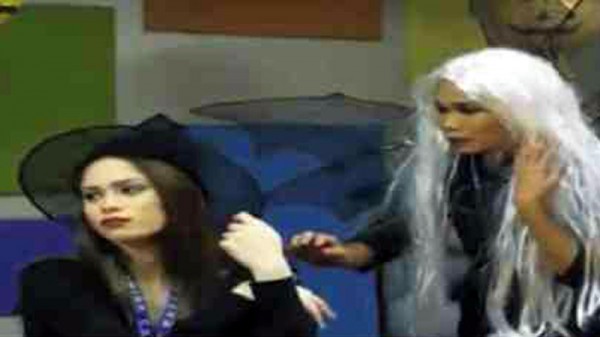TV-film comedienne Pokwang’s current starrer, “Call Center Girl,” casts her as a former OFW whose absence has been resented for years by her youngest daughter (Jessy Mendiola), who works in a call center but hopes to go abroad with her “user” of a boyfriend (EJ Falcon).
Pokwang’s character is hurt by her daughter’s coldness towards her, but she swallows her pride and tries to get on her good side by also working in the call center, so she can help Jessy earn enough money to make her dream come true. Thus does Don Cuaresma’s film combine the twin themes of OFW angst and call center stress, in a hopefully entertaining mix.
Despite its best efforts, however, the film falls short of its objective, initially because both of its main themes are rather old-hat and have been tackled by other productions in the past.
It doesn’t help that, to keep the giggles going, Pokwang appears to have no qualms about constantly shifting acting styles—sometimes, she’s believable and realistic, then she goes campy with a vengeance, then cries herself a melodramatic river!
It’s a good thing that, by film’s end, the movie’s believability factor wins out, to the production’s heartwarming advantage—but, getting there has been too much of a roller-coaster of a trip.
One good aspect of the movie is its insightful juxtaposition of the ironic contrast between Pokwang’s longing for the love of her youngest daughter and the hate for his own mother that’s felt by her team leader at the call center (Enchong Dee). Thus, after squabbling for the longest time, they finally try to help each other get over their respective hurts and hates, resulting in viewers’ empathetic illumination.
Other aspects of the movie aren’t so instructive and gratifying, however. Aside from Pokwang’s helter-skelter portrayal, Mendiola makes inefficient and insufficient use of the cinematic break she’s been given. Her depiction of her character’s unhappiness is more nominal than felt, and she’s such a patsy in her boyfriend’s “user” hands that we end up not caring all that much what happens to her (serves her right for being clueless, etc.).
For his part, Enchong Dee is a more experienced player, but aside from his character’s “mother hatred” aspect, his portrayal doesn’t amount to much, either. He’s palpably too callous to be spot-on for his “team leader” role, and his puppy-love blues over the girl who turned him down are just too juvenile to elicit our concern and sympathy.
Aside from the three lead players, quite a lot of the on-cam action involves other “colorful” call center employees, played by supporting comics who try to out-sass and out-squelch each other at any and all available opportunities.
Unlike other “ensemble comedies,” however, the director here is able to exert some measure of control, so these human fireworks and watusis don’t fly all over the place as much! Thank heaven for small mercies, true—but, our gratitude is genuine!
Old themes
All told, therefore, “Call Center Girl” is hobbled by old themes and topics, and by performances that are short of stellar. But, some of its insights and ironies do come across and make their point, so hope springs that director Cuaresma’s next film will be a more successfully empathetic and illuminating viewing experience.
